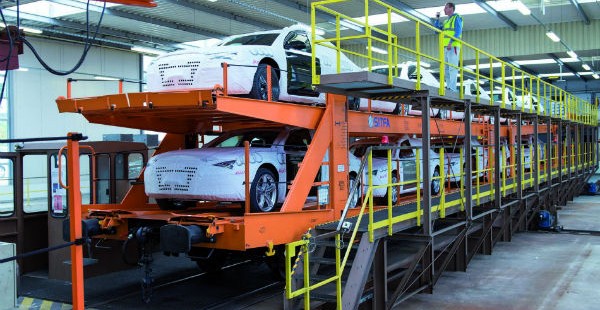As reported by automobile sector CEOs, the rapid growth in passenger car sales throughout the Arabian countries emphasizes the momentum behind the region’s consumer spending boom, and sales are most probably to carry on rising powerfully for at least a few years.
The sales point to the substantial business activity in a region where official macroeconomic data, such as gross domestic product, is often unreliable and released with delays of many months.
Analysts estimate GDP in the richest Gulf economies – Saudi Arabia, the UAE, Kuwait and Qatar – is now growing at annual rates of around 3 to 5 per cent, fuelled by high oil prices and heavy government spending.
Data from executives at this week’s Dubai International Motor Show suggest important areas of consumer spending are rising at much faster rates, and that Gulf citizens are spending much of the welfare handouts which governments have provided since the Arab Spring uprisings of 2011 to ensure social peace.
“Sales are 17 per cent up so far (this year). It will be a good strong end of the year as well,” said Trevor Hill, managing director at Audi Middle East.
Audi, the luxury arm of Germany’s Volkswagen, sold 9,155 cars in the Middle East last year; the UAE accounted for over 40 per cent. In January this year, the company predicted that 2013 sales in the region would rise 12-15 per cent.
Official industry-wide numbers are not available, but because of consumers’ high average incomes and ultra-low, subsidized petrol prices, car sales in the Gulf are skewed towards upmarket brands and large sport utility vehicles (SUVs), in comparison with Europe and many Asian markets.
Britain’s Jaguar Land Rover (JLR), a luxury carmaker owned by India’s Tata Motors, saw a 38 per cent year-on-year jump in Mena sales for the first nine months of 2013, with the UAE and Saudi Arabia its top two markets.
“The economy has been very strong and a lot of the markets in the Middle East are doing very well generally,” said Robin Colgan, JLR’s managing director for the region.
One reason for strong consumer spending growth in some Gulf economies, particularly the UAE and Kuwait, is a recovery of real estate and equity markets from the global financial crisis; this has made customers feel richer.
Residential real estate prices in Dubai, the UAE’s business hub, which had tumbled more than 50 per cent in 2008-2010 as a bubble burst, are up over 20 per cent in the last 12 months – in part because of an inflow of money from investors fleeing political unrest in North Africa.
Dubai’s foreign trade in motor vehicles jumped 18 per cent to Dh32 billion ($8.7 billion) in the first half of 2013, with Japan accounting for a quarter of the total followed by the United States, according to the emirate’s customs office.
That number includes re-exports as well as imports since the GCC countries do not produce passenger cars of their own. Dubai imports many cars that are subsequently shipped elsewhere in the Middle East and Asia.
Auto makers are keen to expand sales in the Gulf partly because they face overcapacity and price pressures in Europe, which has been hit by the euro zone’s debt crisis.
For more information about Dubai Cars, please visit: http://uae.sellanycar.com/Dubai/Cars.html



